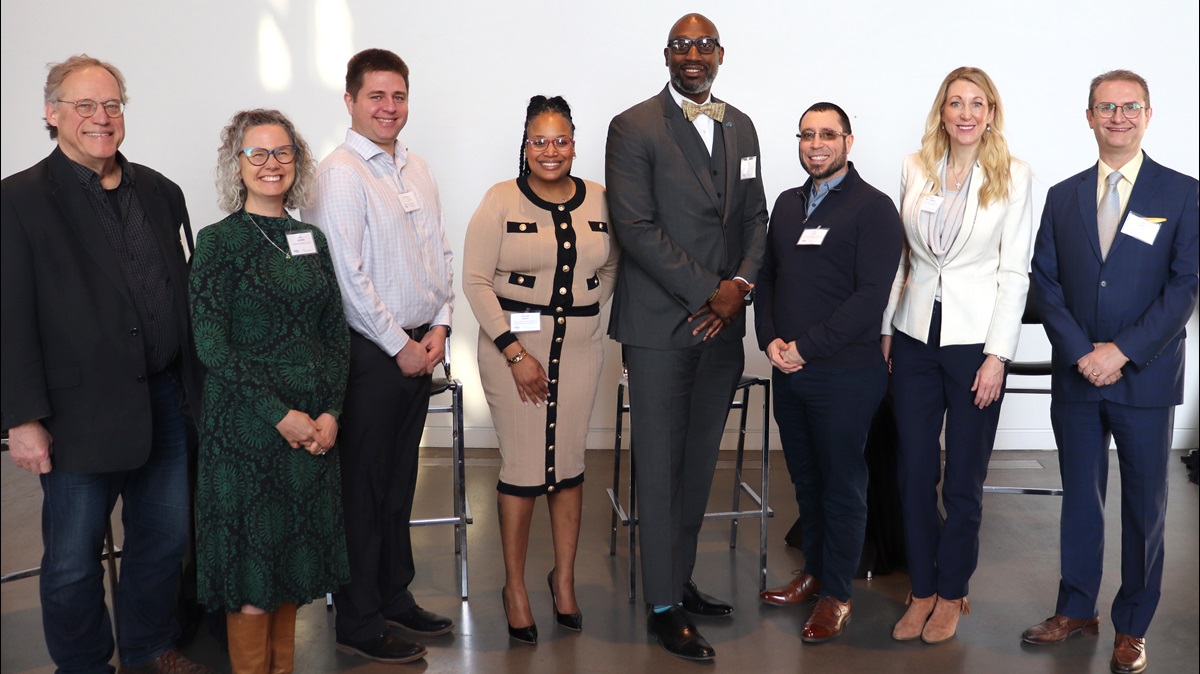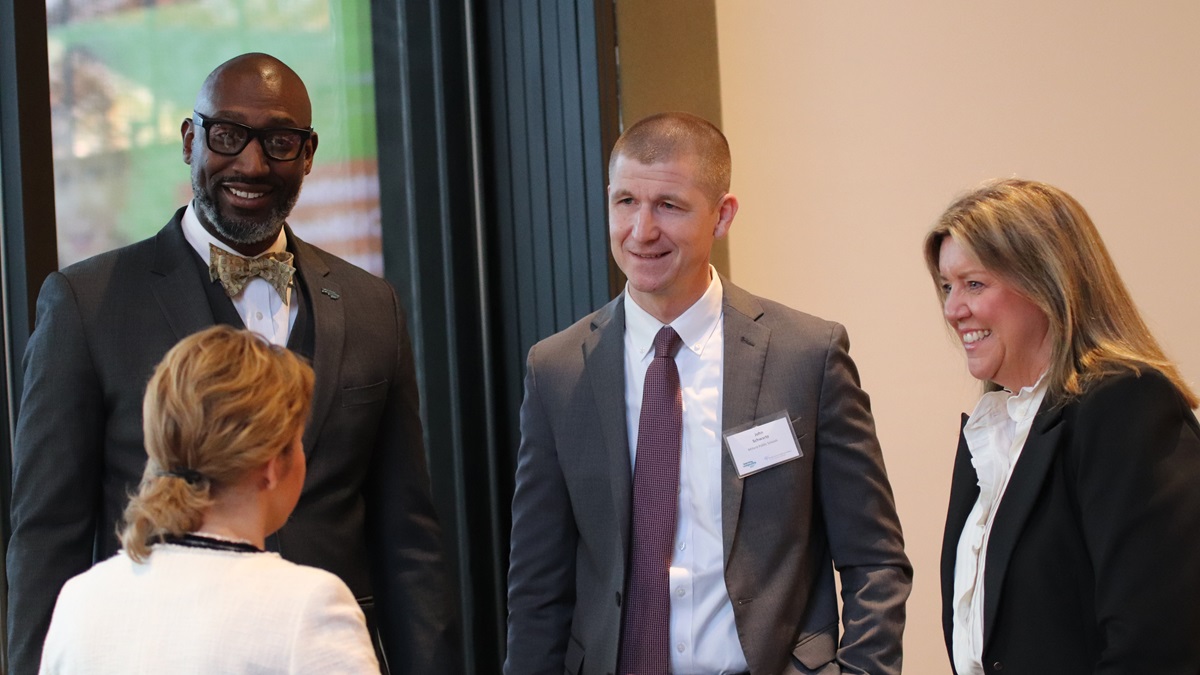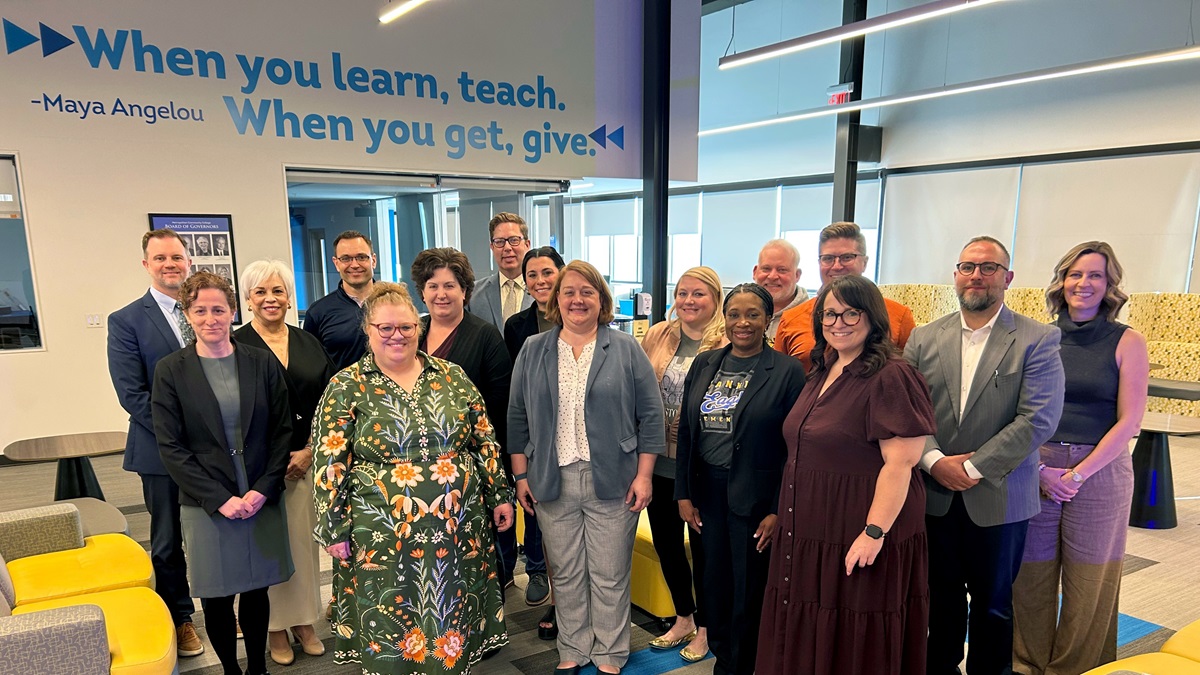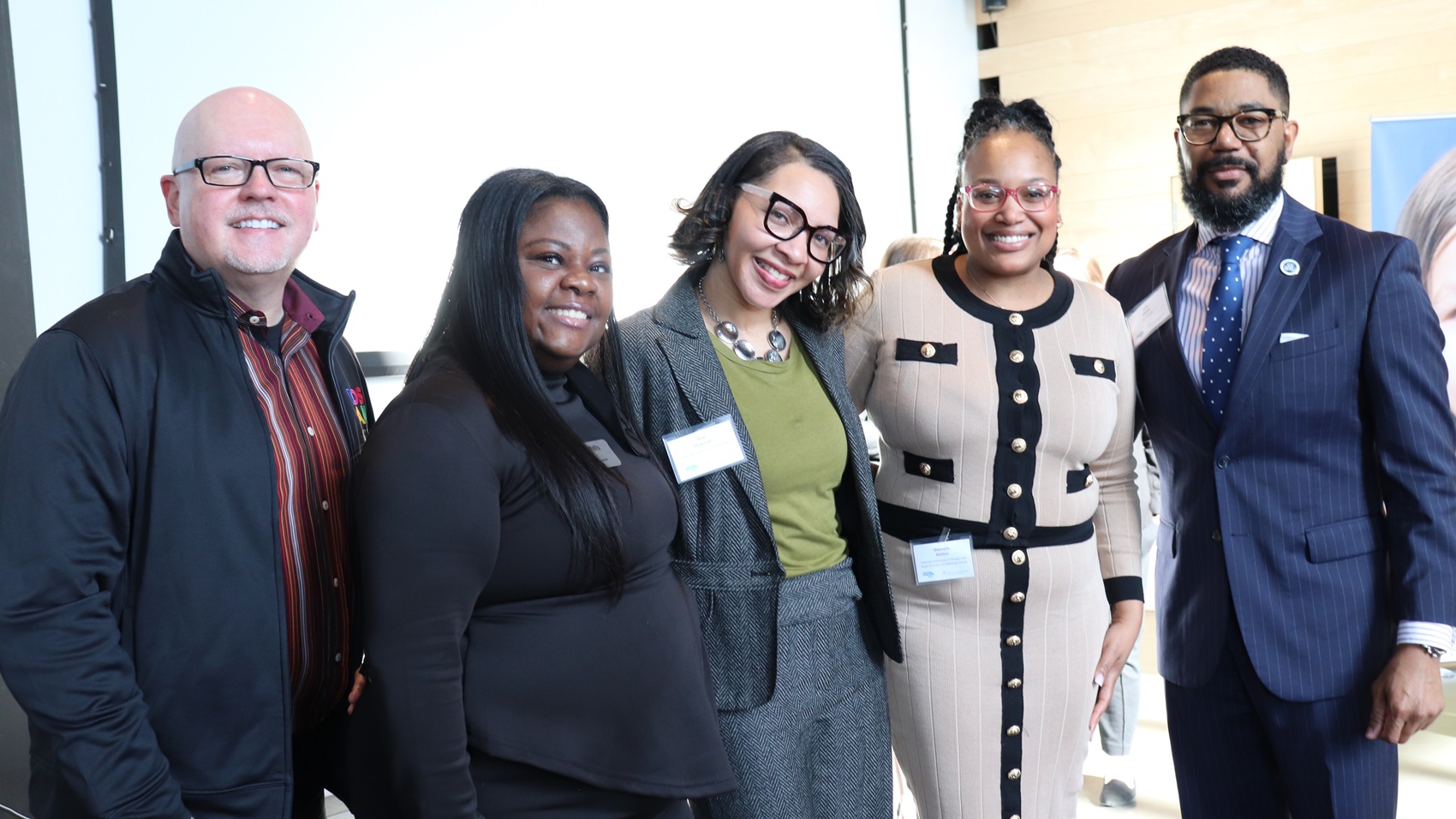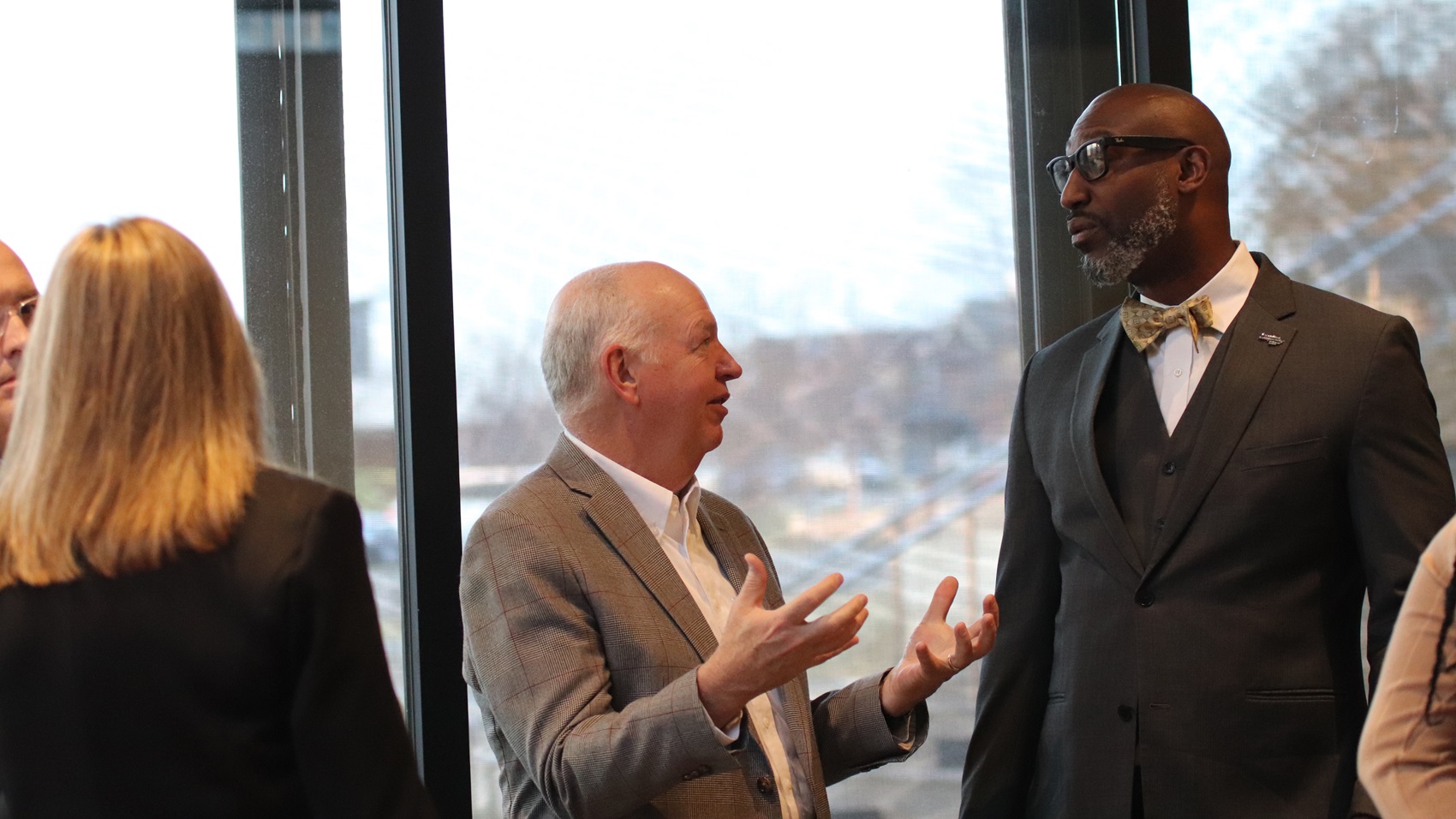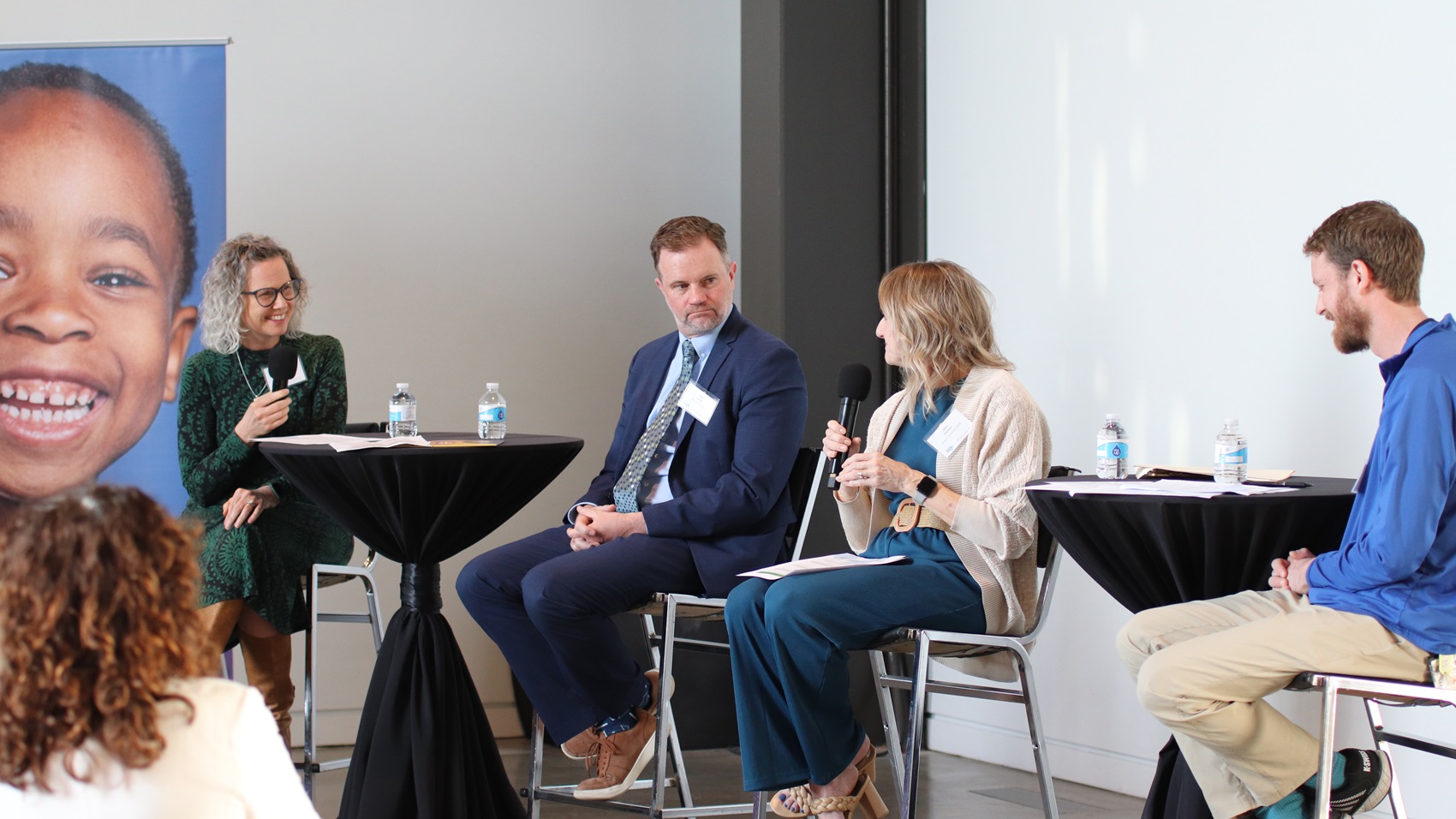
As a superintendent in Michigan, Edward Manuszak knew schools weren’t doing enough to connect with children and families before they entered Kindergarten.
“K-12 is no longer good enough,” he said.
So, the Superintendents’ Early Childhood Plan, an innovative partnership created in 2014 between the 11 school districts in the Omaha metro, made a lot of sense to him.
The plan, intended to level the playing field for all children, especially those living in poverty, strives to provide quality early childhood services from birth to Grade 3.
Manuszak learned about the Omaha plan through his work as a founding co-chair of the Early Learning Cohort of the AASA, The School Superintendents Association. Inspired, he helped create his own regional version in Michigan—the Monroe County Superintendent’s Association Early Childhood Plan.
“You’re leading the nation with this work,” he told an Omaha audience.
Manuszak, a national early childhood expert and executive director of early childhood at Washtenaw Intermediate School District in Michigan, was the keynote speaker at the third annual Superintendents’ Early Childhood Plan convening in Omaha.
The March 27 event was hosted by the Buffett Early Childhood Institute and attended by Omaha-area superintendents, district leaders, principals, school staff, community leaders, and members of the Learning Community of Douglas and Sarpy Counties Coordinating Council. The Learning Community funds and supports the Superintendents’ Plan; the Buffett Institute helps implement it.
“In this room, we’re surrounded by educators and leaders who refuse to let circumstances define a child’s potential,” said Gerald Kuhn II, the Learning Community’s CEO.
Educators from three participating school districts—Millard, Omaha, and Douglas County West— participated in a panel and shared how their schools have embraced early learning through the School as Hub approach, a main component of the Superintendents’ Plan.
Ben Thomas, an early childhood teacher at Liberty Elementary in downtown Omaha, said his school supports learning through play.
“Joy is the most important thing we bring into our classrooms as early childhood teachers,” he said. “It makes our families feel included; it makes our children feel included.”
In Douglas County West, the elementary school holds socialization events for young children and their families at the local library and invites parents in for a monthly Falcon Family Café where families can learn more about curriculum, early literacy, and other topics.
“Our school is the hub of our community,” said Nicki Pechous, the DC West director of special education.
At Cody Elementary in Millard, everyone—from custodians to preschool teachers to the speech-language pathologist—is responsible for creating positive relationships with families, principal Jason Farwell said.
In his talk, Manuszak highlighted the importance of early childhood education and how school leaders can assess and strengthen early learning efforts. He pointed to research from economists James Heckman and Timothy Bartik, who found that investing in quality early childhood education for young children reaped greater lifelong returns, including better health and higher graduation rates.
“Who wouldn’t want this?” Manuszak said.
The event reflected the plan’s emphasis on cross-district collaboration, said Amy Schmidtke, the Buffett Institute’s director of educational practice.
"When we all come together, we can do amazing things for the children in our community," she said.
Erin Duffy is the managing editor at the Buffett Early Childhood Institute at the University of Nebraska and writes about early childhood issues that affect children, families, educators, and communities. Previously, she spent more than a decade covering education stories and more for daily newspapers.



